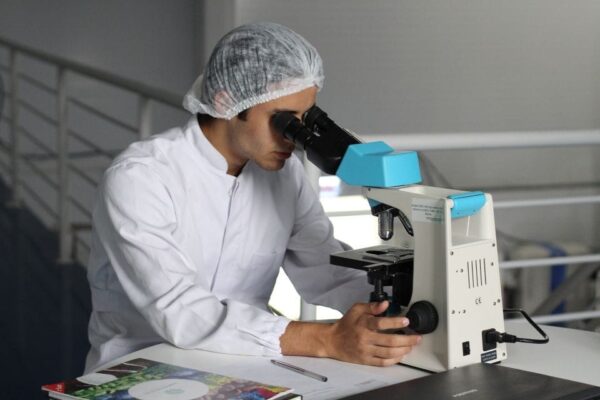The effect of blueberries
Bilberry significantly improves endothelial function in elderly patients. The active ingredient in the leaves of this plant protects the nitric oxide-producing function of the endothelial cells of the blood vessels. The result? Positive effects on the supply of oxygen to the tissue.
The infusion of European bilberry leaves has a positive effect on blood circulation. So if you have problems with your blood pressure, bilberry is an effective solution.
The active ingredients of bilberry
Quercetin, one of the active ingredients in blueberries, can inhibit the formation of Histamine or other allergy-causing or inflammatory substances. Quercetin has been shown to inhibit platelet aggregation (the clumping of platelets in the blood). Therefore, this ingredient is effective in the prevention of various cardiovascular diseases, including stroke, heart attack and thrombosis.
Fulvicherb - Synergy contains besides Fulvic acid an extract from blueberry leaves. It supports the immune system's defences against bacteria and viruses.
The effect of bilberry - eyes

Good news for patients with eye diseases is that bilberry leaves relax the arterioles and venules (blood vessels with a very small diameter) and thus improve blood flow to the eye and vision.
Where can you collect bilberries?

In the Carpathian Basin, this fruit is native to the Carpathian Mountains in Romania-Transylvania and Slovakia. Its leaves and green shoots contain catechin tannins and pro-anthocyanins. Due to the antibiotic properties of the tannins, it is also used to treat diarrhoea (Rácz, Rácz-Kotilla, Szabó, 2012).
Blueberry science

Runjaic-Ante, Pankov and Levic have established the anti-diarrhoeal effect of European bilberry leaves (2010). In studies conducted at the Serbian Institute for Medicinal Plant Research, bilberry leaves showed astringent and antiseptic effects. These studies have proven that bilberry leaves are an effective remedy for indigestion and diarrhoea. In their work "Herbal Medicine: Biomolecular and Clinical Aspects", Wing-kwan Chu, Sabrina C. M. Cheung, Roxanna A. W. Lau, Iris F. F. Benzie and Sissi Wachtel-Galor also discuss the literature on the antibacterial effect of bilberry (Vaccinium myrtillus L.).
The antibacterial effect of blueberries against E. coli, Salmonella sp., Clostridium sp., Streptococcus sp. and Staphylococcus aureus has also been proven.

